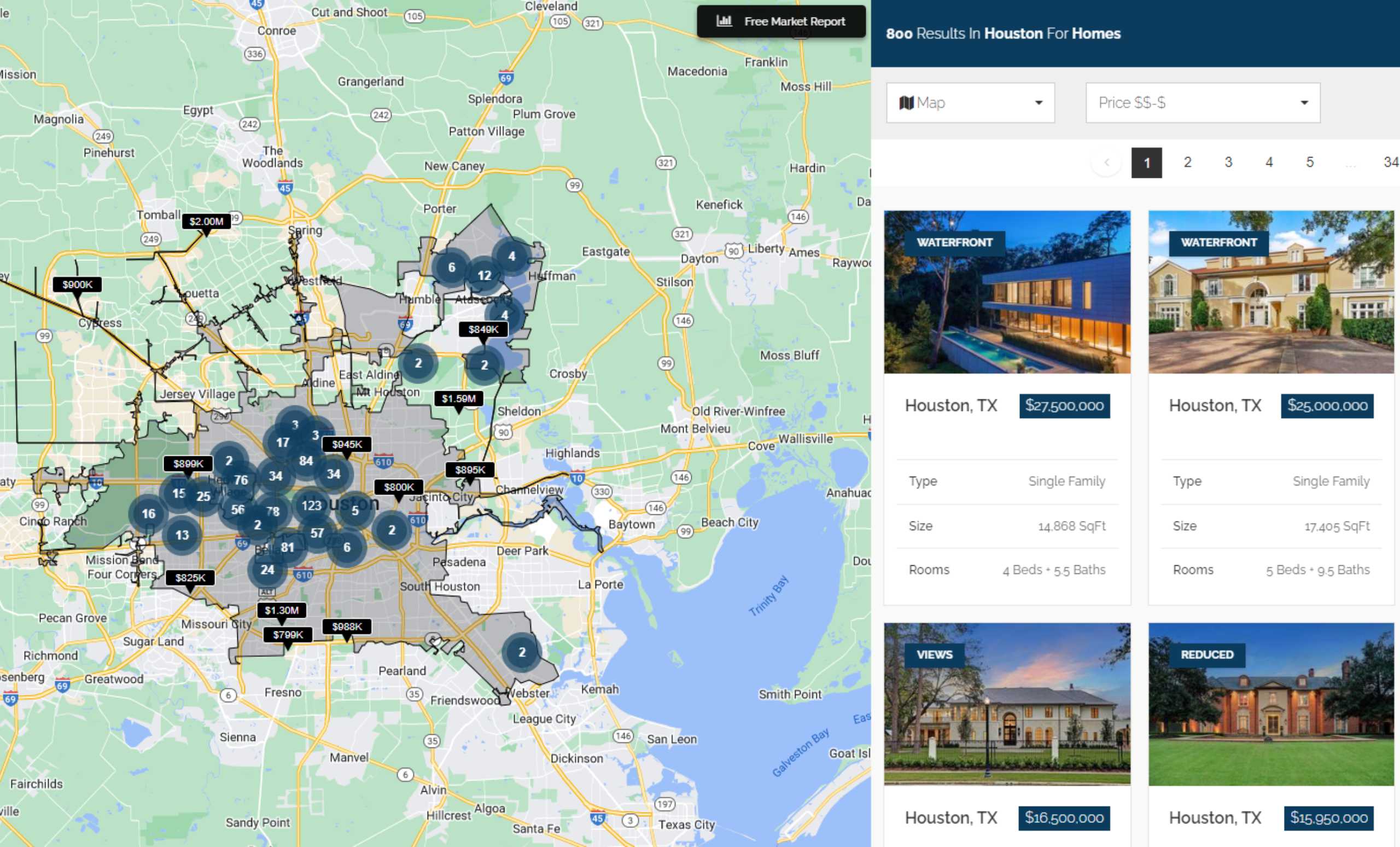IDX vs. MLS: What Are the Differences Between Them?
Blog / IDX vs. MLS: What Are the Differences Between Them?

As the real estate industry has developed and evolved over time, the way that real estate agents and brokers have accessed and shared listings with their clients has changed with it. What began with real estate agents gathering together in one room and sharing listings they were trying to sell has developed into a convenient and accessible process of acquiring local property listings thanks to the internet.
How are listings compiled, shared, and viewed? Real estate listings are necessary for agents, brokers, and buyers. Listings are top priority in real estate. Real estate agents and brokers upload listings and manage them while buyers peruse them. But where do listings come from, where do they live, how are they uploaded, and where do you access them? Can the public view all of them, or are there some listings only agents can see? This is where an MLS and IDX come into play.
IDX vs. MLS: What are the differences between them?
If you would rather watch or listen to this content, check out the video!
What is an MLS?
A multiple listing service (MLS) is a database that real estate agents and real estate brokers use to upload, list, and manage properties for rent or for sale. It is a way for agents and brokers to share information about properties with each other and with the public, in order to facilitate the renting, buying, and selling of real estate. MLS systems typically include a searchable database of available properties, as well as information about each property, such as its location, size, and features.
Who can access the MLS?
The MLS is a membership-based service. MLS systems are used by real estate brokers, real estate agents, and other real estate professionals to find properties for their clients, and by individuals who are looking to buy or sell a property. Some MLS’s have a public-facing portal where buyers can search for available properties. These portals are similar to Zillow, Redfin, or Realtor.com. The biggest difference between the MLS and the public-facing portal is that the MLS’s have the most accurate and up-to-date data. This is because it is required for real estate agents and real estate brokers to keep their properties’ listing information current.
MLS History
It was originally created in the United States in the late 1800s as a way for real estate brokers and real estate agents to share information about properties with each other and their clients. Local real estate brokers and agents gathered regularly to share the properties they were trying to rent or sell. The brokers and agents struck a deal with each other: if one broker were to help another sell one of his properties, the original broker would compensate him. This agreement turned into the Multiple Listing Service.
Today, an MLS still allows agents to share listings and help each other sell properties. Instead of accessing the properties through paper or word of mouth, real estate agents and brokers today can log in to a database. These databases are hosted on software, such as IDX.
What is an IDX?
Internet Data Exchange, or IDX, is software that allows real estate professionals to add MLS (multiple listing services) listings to their personal websites. IDX creates a data connection between the multiple listing service and your real estate website, integrating listings directly into your site. IDX is a revolutionary concept that opened up a whole new world for buyers. Before IDX, buyers had to rely on their real estate agent or broker to view listings in their area. With IDX, the general public can perform their property searches on a website featuring information uploaded to an MLS.
This allows your clients to browse new homes on their own time, and it allows you to get internet exposure to home buyers that are not your clients yet. IDX puts the power of big national website portals, like Zillow, back in the agent’s hands, or at least that’s the goal. IDX keeps listing and contact information completely on your website, allowing you to keep the leads your real estate website generates.
The benefits & challenges of IDX
The Benefits of IDX
There are a ton of advantages when using IDX feed on your real estate website; here are just a few of them:
- Populate local listings effortlessly and quickly
- Help an agent’s listings to gain more exposure
- Draws more traffic to the website
- Your website will have more credibility and accuracy
- IDX allows you to display more listings on your website
- You’ll be able to capture and retain leads that come to your website
- Helps buyers find their dream property
- Helps an agent grow their client base and boost sales
Because the MLS is a closed, members-only system for real estate agents and real estate brokers, the public cannot browse any of these local listings. In turn, their available options seem to be much fewer and are restricted to their agent’s choosing. But, thanks to the Internet Data Exchange, the public can see the same listings their agent or broker does.
The Challenges of IDX
While IDX is helpful and groundbreaking for buyers, not all real estate agents/brokers feel the same way. Some real estate agents and real estate brokers like to be the sole source of listings for their clients so they can weed out less-suitable properties and present only the best options to their clients. The challenge with this thinking is that a client loses out on a chance to choose from a larger pool of properties and is left to only see what the agent deems presentable.
On the other hand, some agents and brokers rely on IDX to drive traffic to listings on their websites. They believe that IDX when incorporated on their websites, will help their business by aiding in generating and retaining leads. The challenge with this perspective is that IDX alone will not boost traffic, leads, or sales. In addition to a website with IDX capabilities, real estate professionals need:
- A quality website that engages the user
- A balanced marketing plan that includes SEO and content marketing to bring traffic to their website
- A IDX feed software that can be embedded on their website (and this can be pricey)
- A Smart CRM to capture the leads from their IDX website
The difference between IDX & MLS.
IDX is a software that allows real estate agents to display listings from other agents on their own websites. This allows real estate agents to show a comprehensive list of available properties to their clients, even if they don’t have any listings of their own in a particular area.
MLS is a database of properties for sale or rent that is maintained by a local association of real estate agents. MLSs are typically only available to members of the association, who use the service to list and find properties to buy or rent.
In summary, IDX is a system that allows agents to display MLS listings on their websites, and MLS is a database of properties for sale or rent that is maintained by a local real estate association and used by its members.
Understanding the different approaches to online property information is crucial for the success and growth of your real estate business. Helping your clients find the home of their dreams is the most important goal—MLS feeds and IDX can help you achieve that. Connect with me and my team to learn how we can build a website that is focused on lead generation and conversion to grow your business. Click here to learn more and to schedule a free consultation.
Get access to the most elite-level training & resources to help you skyrocket production in any market condition.
Learn more about how to become a Modern Agent that drives more leads and closes more deals, and what my group is doing differently to empower agents that no one else is doing here at eXp Realty. Learn how to keep more of your money all while building a solid real estate business.
Based on 15 years of experience & client reviews

